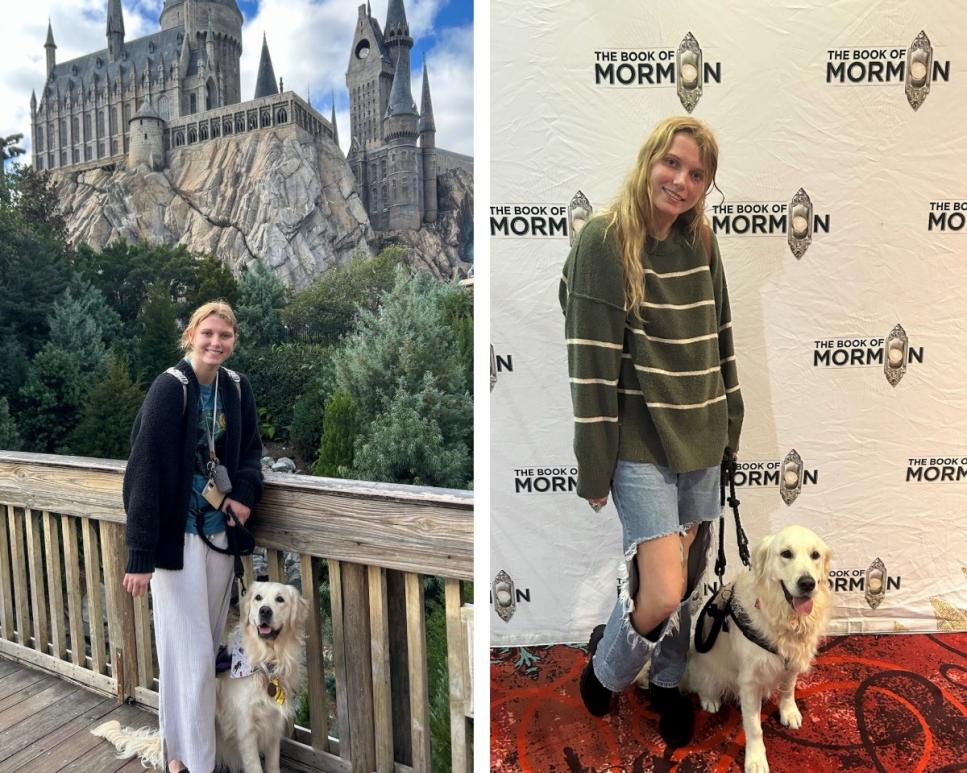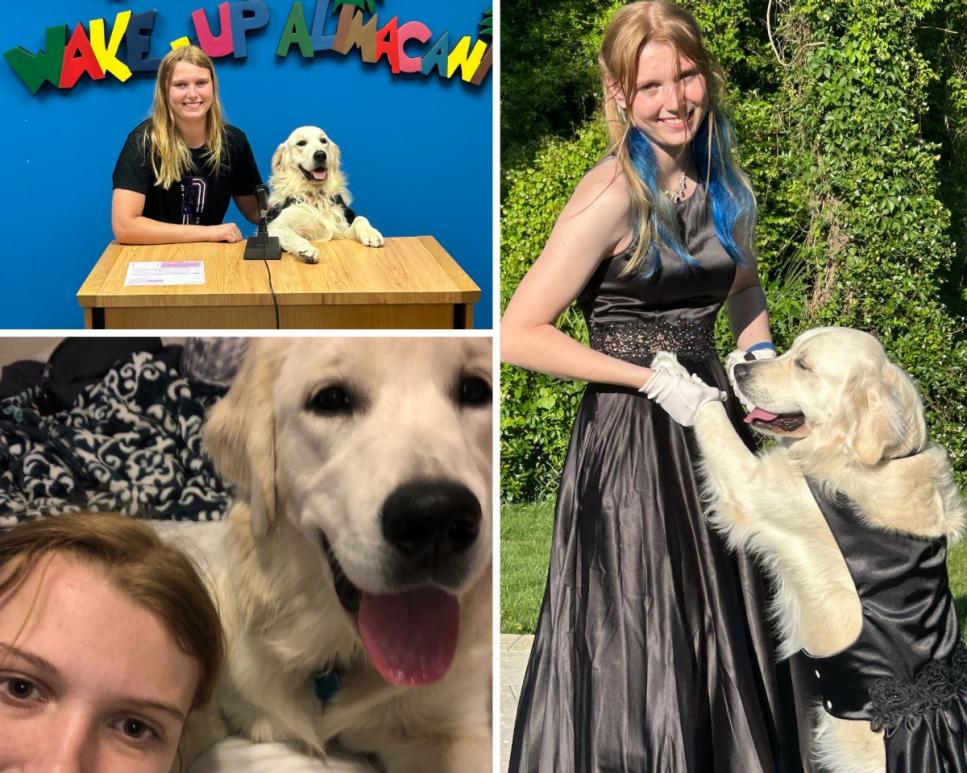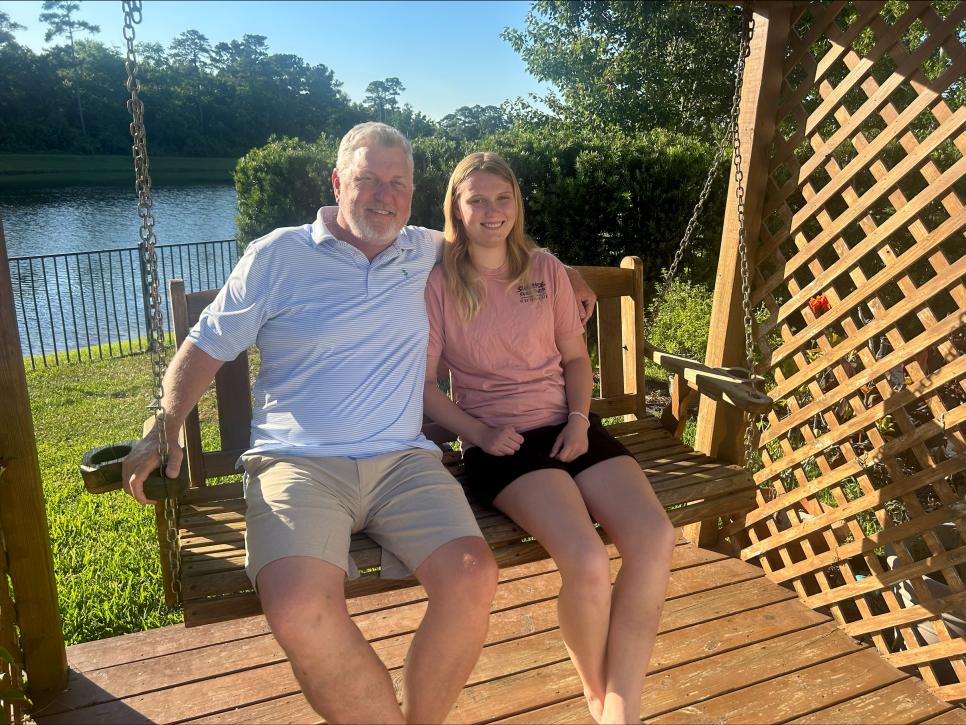A superintendent’s daughter was having a mental-health crisis. Then his membership stepped up – Australian Golf Digest

- by Admin
- May 30, 2024

Golf course superintendents have perhaps the most thankless job in golf. Early wake-up calls, 16-hour days and should their course not meet a high standard, they are Golf Club Enemy No. 1. The stressors of the job have become so intense that a few years ago, Golf Digest’s Ron Whitten wrote about the mental-health crisis amongst supers, including some who have tried to take their lives.
Managing these high standards is familiar to Shannon Wheeler, director of agronomy at The Plantation in Ponte Vedra Beach, Fla., though it was his high school daughter, Mallory, who dealt with serious mental-health struggles. Shannon has the club’s membership to thank for helping his family through those challenging years.
“Mallory was having some difficulties—depression and suicidal ideations,” he says. “It was quite scary as a parent. We were in the midst of COVID, so everything was uncertain. She had some issues where we had her hospitalized and had her in therapy. Then, it came to a head where we had to have her go to a residential treatment place.”
Between her freshman and sophomore years in the summer of 2021, Mallory spent a few months in a residential treatment facility in Chicago. In addition to receiving therapy for anxiety and depression, she was diagnosed with social communication disorder, which according to the American Speech-Language-Hearing Association, is characterized by “persistent difficulties with the use of verbal and nonverbal language for social purposes.”
MORE: Grayson Murray’s death pushes the hard conversations into the open
To help treat her symptoms, her therapist in Chicago recommended Mallory start working with a service dog. “They train these dogs not only to work with servicemen and women who are injured or dealing with PTSD, but they also train dogs to help kids with autism and mental-health challenges,” Shannon says.
Upon returning home, Mallory researched local service dogs and found Project Chance, a North-Florida-based organization founded by former special needs teacher B.J. Szwedzinski, whose mission is to train service dogs with specific skill sets needed to help children diagnosed with autism and other developmental disabilities. Through Szwedzinski and Project Chance, Mallory began working a few times a week with Harlow, a Golden Retriever puppy training to become a service dog.
“She has given me my independence, my confidence, everything back to me,” Mallory says of her service dog, Harlow.
“We have been a perfect fit,” Mallory, now 18, says.
But when it came time in May 2022 to purchase Harlow and bring her home full time, the price was a shock.
“Harlow was going to be $36,000 trained, which is quite a number,” Shannon says. Project Chance had grants available to bring the out-of-pocket cost to the Wheelers down to about $14,000. The cost was high, but within a few months of working with Harlow, the benefits to Mallory were clear.
Mallory was quickly more confident and comfortable, especially in social situations. Harlow is trained in behavioral and self-harm interruption and senses when Mallory is distressed. Harlow then uses Deep Pressure Therapy or Light Pressure Therapy, when she will either lay on Mallory’s chest to slow her heart rate or put her paws and head in Mallory’s lap to help calm her down.
Seeing how Harlow had changed his daughter’s life, Shannon was determined to find a financial solution, even if that meant the Wheelers putting up all the money themselves.
Shannon turned to a member at The Plantation, Fred Goldsmith, who founded Pet Paradise, a chain of dog and cat boarding schools. Along with giving advice on possible grants available, Goldsmith advised Mallory to create a GoFundMe page, which he could then help share with the rest of the membership.
MORE: The growing and surprising mental-health challenge facing golf superintendents
Mallory created the page, set the goal of $14,000 and Goldsmith distributed it to the membership. A day went by and there was a few hundred dollars raised. A couple days later, the number had ticked up to $3,000. “By the following week, we had exceeded our goal and raised $17,600 within five days,” Shannon says.
“All 68 donations, with the exception of one or two of them, were from members of the club,” he says. “Not only that, but I had members coming up that didn’t feel comfortable going online, and they were handing me checks or cash. All told, we raised around $22,000.”

Mallory’s high school allowed her to bring Harlow to school, which Mallory says not only brought her comfort but helped her make new friends, as her Golden Retriever is a natural conversation starter.
For Mallory, the membership’s quick fundraising was not just an encouraging show of support for her father, but an assurance that she could continue the life-changing work she had done with Harlow.
“It was amazing how everyone in the community from my dad’s golf-course membership came together and pitched in to help me get my service dog who has helped my day-to-day life and changed my life forever,” Mallory says. “I don’t know where I would be without her.
“She has given me my independence, my confidence, everything back to me. I’m able to go to school now because of her. I’m able to have a job now because of her. I was able to do a college program that I absolutely adored last summer because of her.”
A few years later, members still come up to Shannon and ask about Mallory. “They’re always asking how the dog and Mallory are doing,” he says. “They’re really happy to hear that she’s going to graduate, that she’s healthy and that she’s had no more incidents. It’s something that could have been so negative, and that I’m sure so many families are dealing with just like us, but it turned into a positive.”

Shannon had only been at The Plantation for one year when the membership raised about $22,000 for Mallory. The support made him quickly feel valued at the club.
Considering the Wheelers raised well over their original goal of $14,000, Mallory has donated any leftover money to Project Chance, the organization that connected her with Harlow. That extra money, Mallory hopes, will allow other kids to have access to the service dogs that could change their lives.
Mallory recently graduated from Fletcher High School, and she works part-time as a pet playtime coordinator at Pet Paradise. In the fall, she plans to attend local community college, where she is considering majoring in veterinarian studies. Mallory attributes each of these accomplishments to the confidence and independence that Harlow has given back to her—and for that, she thanks the membership at The Plantation.
“This summer, I want to go and say hi to everyone who contributed to Harlow and say thank you so much for her because she really has changed my life,” she says. “She is an amazing dog. She has brought me back my independence.”
May is Mental Health Awareness Month. If you or a loved one are experiencing mental-health distress, contact the 988 Suicide & Crisis Lifeline immediately by calling or texting 988 or chatting with an expert online at 988lifeline.org.
This article was originally published on golfdigest.com
The Latest News
-
December 24, 2024North Lamar Australian Basketball
-
December 24, 2024We asked Golf Digest writers the story they were proudest of in 2024, and why – Australian Golf Digest
-
December 24, 2024Blueprint for success: how Australian architects made the world take notice in 2024
-
December 24, 2024‘Novak Djokovic will only care about the Australian Open and Wimbledon’
-
December 24, 2024PNG-Australia NRL Deal: K1.7 billion economic boost and 10,300 jobs expected





